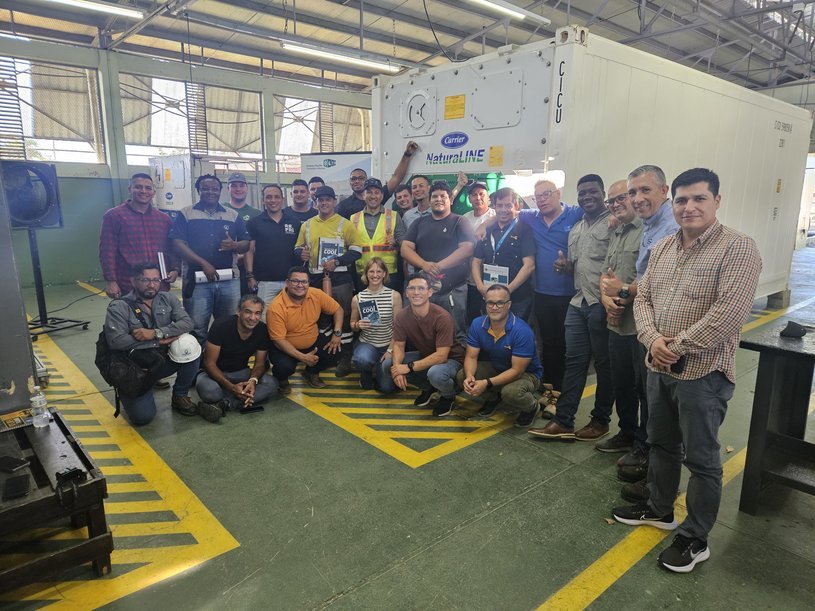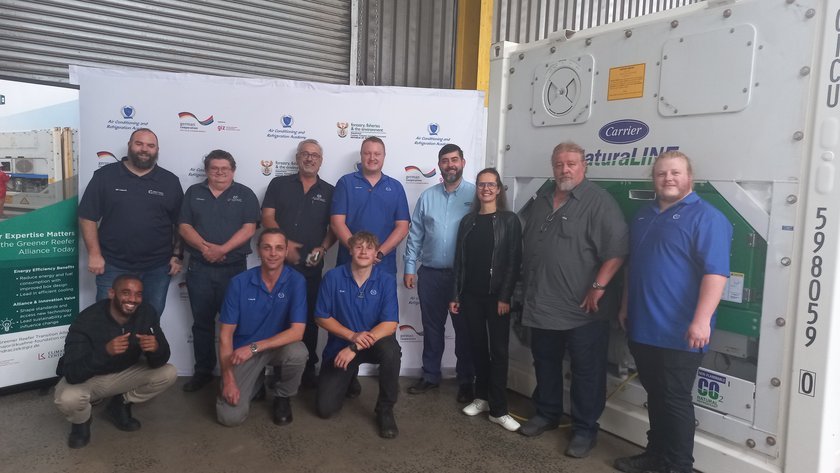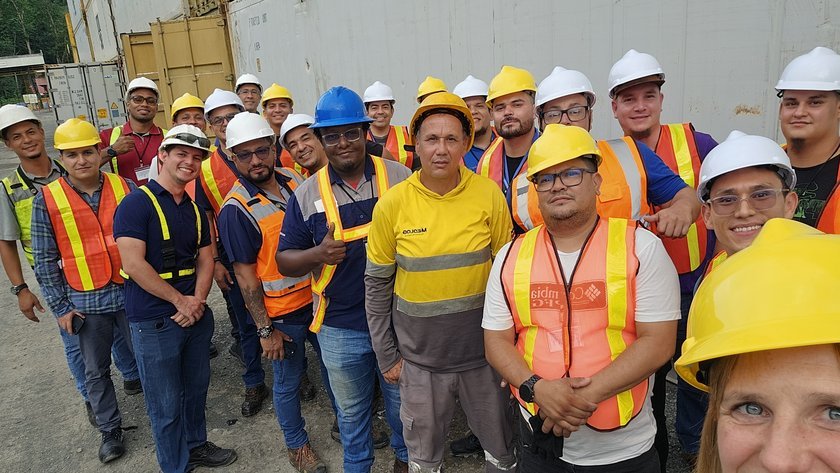South Africa and Costa Rica advance CO₂ reefer training under Greener Reefers Project
Technicians and educators in South Africa and Costa Rica have received targeted training in CO₂-based refrigeration technologies for refrigerated containers (reefers), as part of the Greener Reefers Project funded by Germany’s Federal Ministry for the Environment through the International Climate Initiative (IKI). Implemented by GIZ, the initiative aims to accelerate the global shift toward climate-friendly natural refrigerants such as CO₂ (R744) and propane (R290).
In July 2025, Durban hosted South Africa’s first training on natural refrigerant reefer systems. Seven participants from the Air Conditioning and Refrigeration Academy (ACRA) and West Coast College received theoretical and hands-on training using Carrier Transicold's NaturaLine unit. The program focused on safe handling and energy-efficient operation of CO₂ systems. Additional reefer units were donated to training centers to support continued education. Courses will resume in October 2025 and February 2026. By the end of 2025, over 45 South African technicians are expected to be certified.
In Costa Rica, a four-day training in Puerto Limón brought together 20 educators from the National Institute for Learning (INA), the Ministry of Public Education, and Fundación Samuel. The program emphasized training educators as multipliers to integrate natural refrigerants into national technical education. The initiative aims to expand the reach of CO₂-based knowledge beyond reefers to other refrigeration applications.
“This is the first training of its kind. Trainers are now prepared, and technicians will follow,” said Zane Silinda, GIZ South Africa advisor. “New graduates can learn about natural refrigerants and CO₂ refrigeration, gaining the skills needed for installation, maintenance, and operations of these sustainable technologies.”
“These trainings expand the knowledge of technicians and educators,” added Andres Domian, GIZ Costa Rica advisor. “The main challenge is changing existing paradigms around refrigeration, raising awareness not only among technicians but also among the general population.”
With over 4 million refrigerated containers in use worldwide, the project supports the HFC phase-down under the Kigali Amendment by fostering safe, scalable adoption of low-impact refrigerants.


